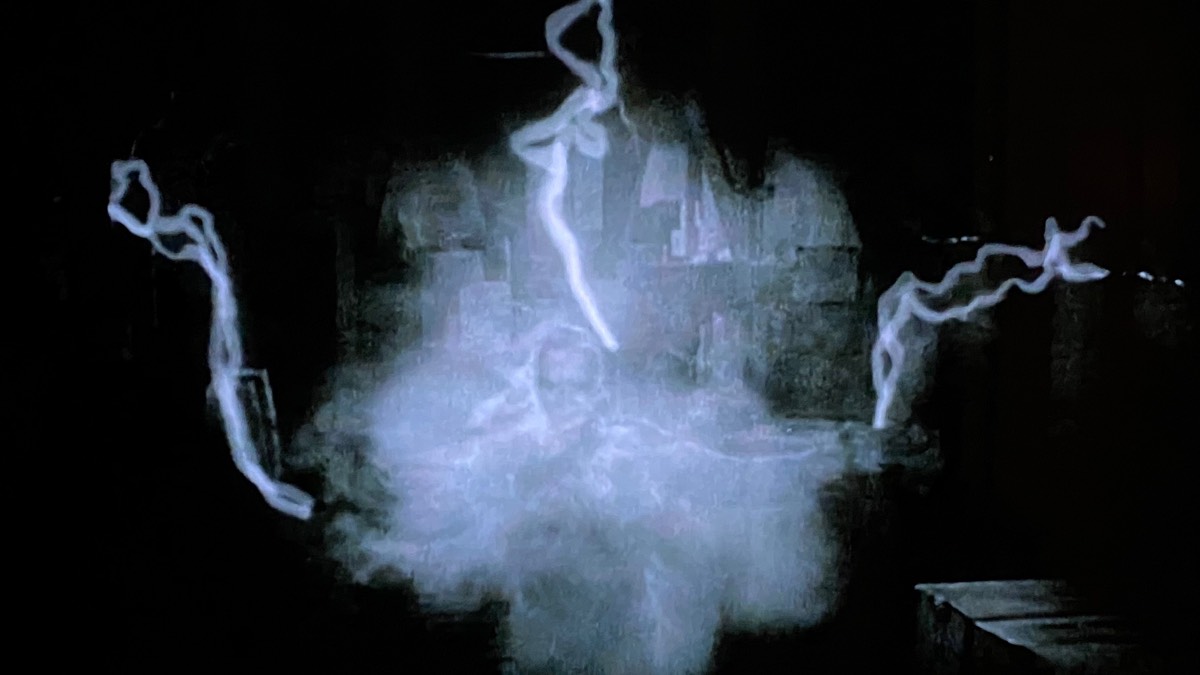
The Thing From Another World (1951)
Director: Christian Nyby
After Shadow in the Cloud, I wanted a calmer, less frenetic experience, but to also feel like the next film flowed from it naturally, so I chose The Thing From Another World. It’s set not long after the end of the second World War and again involves the military. Captain Hendry is a pilot with the US Air Force and is sent with his crew to a remote scientific outpost in the Arctic to investigate a report of a crashed aircraft. The lead scientist is the prickly Dr Carrington, and when the investigative team realise they have discovered the remains of a flying saucer, as well as a frozen alien life form, there is a clash between the military, the scientists and the press as to what they should do next. When the alien is accidentally thawed, its unique biology threatens humanity.
The US military is presented as confident and possibly a little complacent. The soldiers are charming and banter with each other at card tables, while Hendry’s crew tease him about a girl he knows at the outpost they are to be sent to. The newspaper reporter, Ned Scott, seems to have access to all areas, even on a military base, because he’s one of the guys. The tone is closer to comedy than sci-fi or horror. In a weirdly charming scene, scientific assistant Nikki (we only get her first name, presumably as she’s a woman) ties Hendry to a chair because of his predilection when drunk of having ‘octopus hands’ and feeds him whiskey. At this point I wondered what I’d signed up for.
The story gets juicier when the body of the frozen alien creature, a rip-off of Frankenstein’s monster, is accidentally covered with an electric blanket, and after a few hours of unnoticed dripping is set free to begin its killing spree. The lead scientist is a coldly ambitious loon, but he works out that the creature uses blood to regenerate and spread. Of course, the military saves the day, and the reporter gets the final, iconic lines, broadcasting his report: ‘Tell the world. Tell this to everybody, wherever they are. Watch the skies everywhere. Keep looking. Keep watching the skies.’